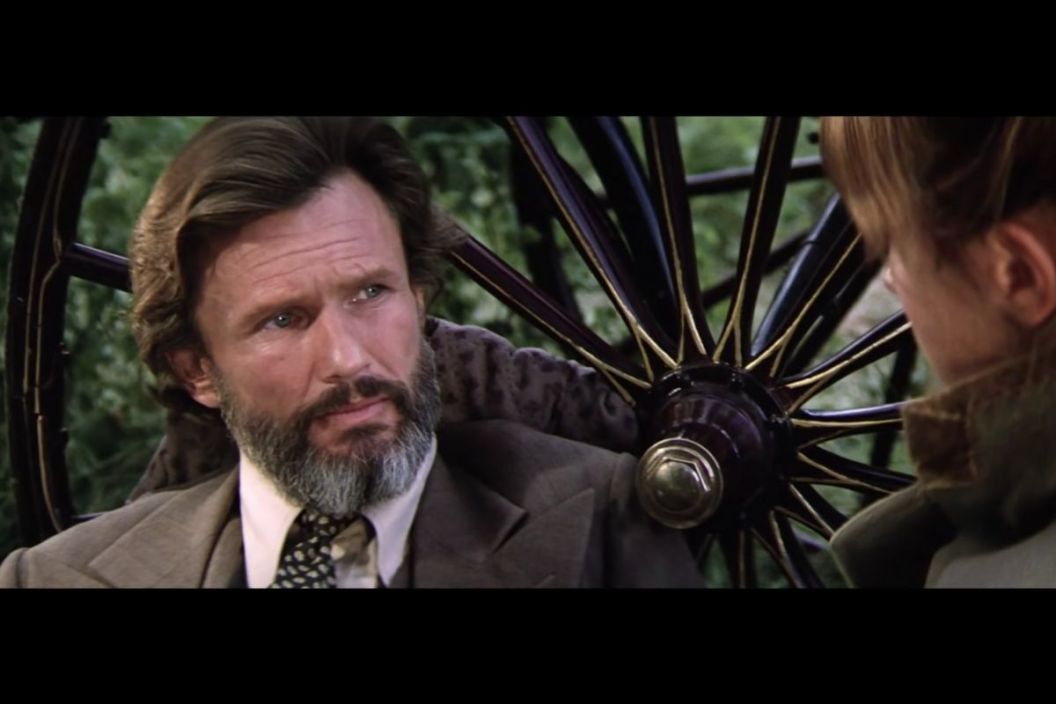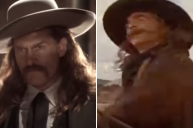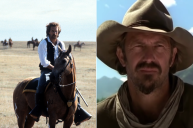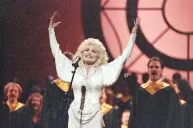Throughout the 20th century, our image of the American cowboy changed drastically. The archetype twisted, from the white-hatted heroes of traditional Westerns to more complex anti-heroes. Amidst the Vietnam War and the Civil Rights movement, Spaghetti Westerns ruled. Then, in the '70s, revisionist Westerns endured under directors like Robert Altman and Sam Peckinpah. But in 1980, one fateful film stood out as something of a deathblow the brooding sub-genre: Michael Cimino's Heaven's Gate.
Videos by Wide Open Country
'Heaven's Gate'
Based loosely on true events from the Johnson County War, Heaven's Gate explores a Montana community ravaged by class conflict during the late 1880s. When cattle barons began ruthlessly persecuting -- and executing -- alleged rustlers, bloody battles ensued across the frontier. Heaven's Gate follows the story of James Averill (Kris Kristofferson), a Harvard grad marshal briefly caught up in the cause. Set in Casper specifically, poor Eastern-European immigrants have become the central target of the Wyoming Stock Growers Association: a devious network of local barons. Averill fights to defend said immigrants in events that lead to a painful stand-off. There's also a love triangle! Between Averill, the madam Ella Watson (Isabelle Huppert), and a brave rancher named Nate Champion (Christopher Walken). All three were real historical figures.
Cimino's The Deer Hunter won Best Picture at the Oscars in 1979. Coming directly off that success, the filmmaker intended Heaven's Gate as his magnum opus. To fill out his epic Western vision, Cimino employed an eager, star-studded cast -- Kristofferson, Walken, Huppert, Jeff Bridges, John Hurt, Sam Waterston, Mickey Rourke, Joseph Cotten, Geoffrey Lewis, Brad Dourif, Willem Dafoe -- with seemingly limitless resources. Filming on location in Montana and Idaho, the budget for Heaven's Gate swelled to $44 million: four times the initial projection.
So why wasn't it worth it?
A Doomed Production
By all accounts, filming Heaven's Gate was a hellish experience. The ballooning production costs notwithstanding, the film was perpetually behind schedule. Cimino, known for his obsessive attention to detail, ordered set rebuilds and scene reshoots constantly. Often, scenes were re-shot 50 times. He quickly gained the on-set nickname, "The Ayatollah." In 2004, Kristofferson recalled the time when Cimino demanded 52 takes of his character getting slapped awake in bed. "It was an ordeal," Kristofferson told the Los Angeles Times.
In all, Cimino shot more than 1.3 million feet of footage, breaking the 1 million-foot record held by Francis Ford Coppola for Apocalypse Now: another infamously grueling production. The on-location shooting lasted for nearly an entire year. And during that time, the press was increasingly bad. The American Humane Association was barred from monitoring any animals on set, but terrifying stories leaked out. Horses were reportedly injured en masse while filming a battle scene; four died, including one which was blown up by dynamite. Prior to Heaven's Gate's release, rumors swirled.
That Roller Rink Scene
The title of Heaven's Gate comes from the name of the town's roller skating rink, built by the entrepreneur John L. Bridges (Bridges). It's there that Averill first bonds with the lovely Watson. During that joyous scene, set against an uninterrupted fiddle solo, a large crowd dances along entirely on skates. Characteristically, this took ages to film. According to reports, the actors spent several hours per day for six weeks learning how to roller skate, even to skate backward. Watch the whole clip to see Jeff Bridges puke while wobbling on his skates!
The Negative Reception
"[Cimino] is trying to demystify the West, and all those other things hotshot directors try to do when they don't really want to make a Western. But this movie is a study in wretched excess... It is the most scandalous cinematic waste I have ever seen, and remember, I've seen Paint Your Wagon. " -- Roger Ebert
At the time of its 1980 world premiere, the runtime for Heaven's Gate was nearly four hours long. Lacking due momentum, the critics blanched. The New York Times reviewer Vincent Canby called the slow-moving spectacle an "unqualified disaster." Roger Ebert, writing for the Sun-Times, critiqued the sepia-soaked cinematography and complained that he wanted to "try Windex on the screen." Worried, the studio pulled Heaven's Gate from theaters entirely after just a week; a slightly shorter cut was released in April of 1981. Still, the movie flopped, earning just $3.5 million at the box office against a $44 million budget. Envisioned as a masterpiece, Heaven's Gate proved to be perhaps the biggest box office bomb of all time.
Coming off the New Hollywood craze of the '70s, in which directors like Martin Scorsese ruled as a film's central auteur, Heaven's Gate acted as a warning to studios: do not give in to your directors. Operating with total control, Cimino squandered resources and ravaged the reputation of its studio: United Artists. The successful production company had been co-founded by Charlie Chaplain and enjoyed continued success thanks to the lucrative Rocky, James Bond, and Pink Panther franchises. But suddenly, it became the laughing stock of cinema. Anxiously, the parent company Transamerica sold UA off to MGM (where it remains today). And there's no wonder why. Heaven's Gate was instantly synonymous with Hollywood hubris: a grand failed experiment in filmmaking.
The Heaven's Gate debacle also came to symbolize a cultural distaste for the Western genre. Throughout the subsequent decade, few were made. But in 1992, Clint Eastwood's Unforgiven revitalized the forgotten format on a mainstream scale and revisionist Westerns are still popular today. A far cry from Cimino's granular realism, Quentin Tarantino's Once Upon a Time... in Hollywood is an interesting, postmodern example.
Read More: What Is a "Revisionist Western"?
Nate Champion's Brutal Last Stand
In this gruesome episode, Walken's Champion fights the powerful baron army to the bitter end. Amidst the many excesses of Heaven's Gate -- be them violent or boring -- Champion's fiery demise stands out memorably.
'Heaven's Gate' Today
Despite the embarrassing footnote in Hollywood history, Cimino's film, in recent years, has garnered new attention. In 2012, Cimino entered a 216-minute-long director's cut in the Venice Film Festival. That recut was widely revered. A year later, Cimino released another director's cut in New York City. The BBC critic Nicholas Barber, in particular, has championed the reconsideration of Heaven's Gate, writing that "the scenes which were slammed in 1980 as being symptomatic of waste and excess - the Harvard waltz, the massed rollerskating - are the scenes which take your breath away." They are, indeed, atmospheric. Heaven's Gate is now included in the BBC's list of 100 Greatest American Films (albeit at #98) and is also part of the Criterion Collection. Perhaps, in 2021, warfare against the rule of reckless barons makes for a more timely watch. Futile as it may be.
Learn more about the unique film journey of Heaven's Gate below, in the fascinating documentary Final Cut.




